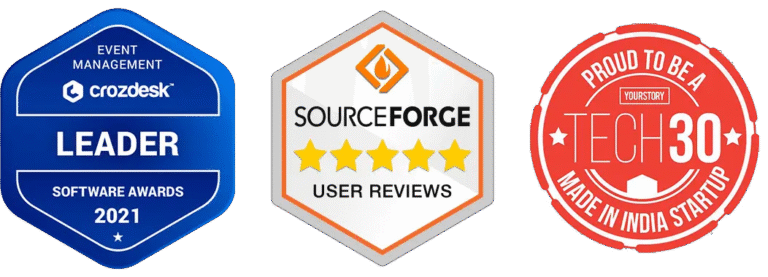Samaaro + Your CRM: Zero Integration Fee for Annual Sign-Ups Until 30 June, 2025
- 00Days
- 00Hrs
- 00Min
We have mentioned this before, but it is important to emphasise that before you start planning your event, the first step is to clearly define your event agenda and objectives.
Defining goals for your event and outlining the necessary actions to achieve them can offer several benefits. Firstly, it helps you clearly define what success means for your team. Secondly, it allows you to anticipate any potential challenges or areas where different components of the event may align. Thirdly, it helps you understand the specific numerical targets needed for profitability or breaking even. Lastly, it enables smooth communication of your event requirements within your organisation.
To determine your event agenda, it is important to document the purpose behind your event. During the planning phase of your goals, it is beneficial to engage in a series of inquiries to improve your understanding. The questions that are included are:
Recommended goals for events are to use the S.M.A.R.T. model. This tool is used to develop goals that are Specific, Measurable, Achievable, Relevant, Time Bound.This article will discuss an important set of goals that businesses should consider first before planning different levels of events. This article speaks to the importance of having a clearly defined event agenda. As an advertisement event can help create brand awareness and generate leads, an event will exist as a one piece of a larger marketing approach and not create reliance.

Conference events provide an effective way to share knowledge, build professional connections and learn skills & insights specific to the industry. To maximise the benefits of conference events, businesses should establish their own event objectives:

Trade shows are high-energy marketplaces where companies sell specific products and services to a targeted audience. Therefore, it is essential to formulate a well-planned agenda around the event to reap the most benefits from such high-energy events.
Congratulations! You are launching a new product and have evidence of planning in this process. A measure of success in launching your product is planful strategy and evidenced by a detailed plan of strategy. You will have a greater degree of success with an evidenced, measurable objective.
Pop-up events are temporary experiential opportunities to connect with a specific audience in a transitional space. When designing pop-ups, please consider the below objectives:
Seminars, like pop-up events, are education programs designed to share knowledge, expertise, and insights to audiences. When organizing seminars, consider the following objectives:
The goal of Networking Events is to develop connections in the industry. Be sure to establish the following goals so it will be a successful networking event:

Webinars are seminars or workshops where businesses can connect with their audience virtually online. When planning webinars, you should consider:

Charity events are organised to raise money, awareness, or support for a particular cause. When planning charitable events, consider the following objectives:

Partner meetings bring together business partners, distributors, resellers, and other stakeholders to strengthen relationships and discuss potential collaborations. When organising partner meetings, consider the following objectives:
Setting definite, detailed event goals/agenda is comparable to plotting a successful journey. These objectives act as compass points, pointing your efforts, resources, and innovation in the direction of obtaining worthwhile results.
However, it’s especially important to stress the significance of not combining goals and anticipating various results from the same occurrence. Each objective has a unique focus and purpose, and attempting to combine or compel them can result in confusion, ineffective efforts, and ultimately unsatisfying outcomes.

Built for modern marketing teams, Samaaro’s AI-powered event-tech platform helps you run events more efficiently, reduce manual work, engage attendees, capture qualified leads and gain real-time visibility into your events’ performance.
Location


© 2026 — Samaaro. All Rights Reserved.